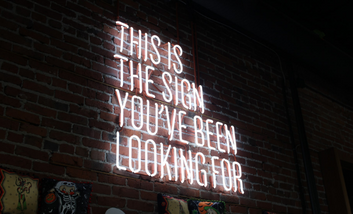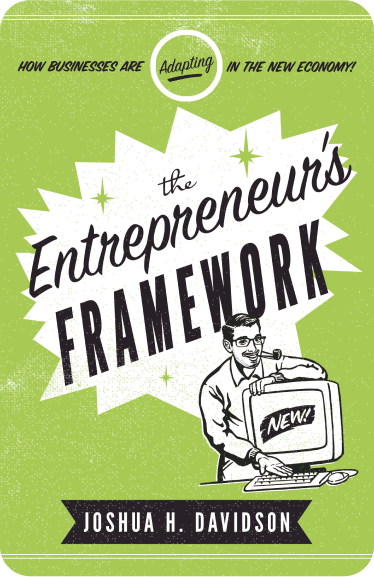You can’t deny that hustle culture is everywhere. Many entrepreneurs have even built entire empires based on the idea that anyone can do what they have done, and asking any questions dooms you to mediocrity. But, if anyone can do it if they just want it enough, why do so many small businesses fail?
As such, this might be a controversial post. However, we think it’s worth it to explore the reality of entrepreneurship.
And that reality can sometimes be difficult.
You have likely seen countless posts and graphics flooding social media that say things like:
Hustle until your haters work for you.
Outside of the world of social media influencers and motivational aspirational millionaire content, however, most actual entrepreneurs would tell you that points of view like these don’t actually serve anyone well.
For one, while claiming to be inspirational, a lot of them are quite negative. Good business is usually a result of careful planning and good relationships. It almost never comes from spite.
This widely shared image implies bad relationships with both others and yourself. This approach is not healthy for anyone, whether they want to be the next Jeff Bezos or not.
Why Acknowledging Failure Is So Important
For one, in order to have a balanced view of the world and make smart decisions, in any arena, you have to be able to accept the good and the bad of things.
Could your small business or startup be the next multinational corporation or unicorn company to revolutionize society?
Absolutely!
While it is important to have that drive and optimism, it is also important to recognize that there is a lot of risk involved. If you only focus on your dreams and refuse to recognize any of the real-world roadblocks, you could end up in a bad situation.
It is impossible to react to your circumstances in an intelligent way if you don’t recognize them.
Learn From Failure, Don’t Deny It Exists
The simple truth is that both success and failure are a big part of the journey of almost every entrepreneur. In fact, according to the US Bureau of Labor Statistics:
Roughly 50%of small businesses fail within five years. 49.3% of small businesses founded in March 2013 were closed by March 2018.
A great example of failure as part of the journey is Richard Branson, the business magnate behind the world-famous Virgin Group.
He has launched over 400 companies under that brand. It is no secret that some of those have failed.
Information Is Power

When you look at your own mistakes and those of others, you can actually learn a lot about how business works.
This is invaluable information, which you miss entirely if you get caught up in pretending that success is the only option, and anyone who says otherwise is “just a hater.”
In this post, we are going to explore some common small business owner mistakes, so you can avoid them and build a thriving company!
Revenue Confusion
Most small business owners know exactly how much it costs to keep the lights on, so to speak.
Whether it’s rent, raw materials, or making sure that outside vendors are paid on time, they know what they have to spend to keep things going.
However, there can be a disconnect when it comes to understanding how much they actually take in on revenue from what they offer or sell.
Many of the owners of small businesses fall into the trap of trying to offer competitive pricing in saturated industries.
About a decade ago, many small business owners learned this the hard way when Groupon took over.
Proper Pricing Is Key

At the height of Groupon’s popularity, businesses would offer services at heavy discounts, using Groupon.
Of their heavily discounted prices, Groupon would then take about half of it.
While they would end up with new customers, these customers would not really pay them for their services, and would rarely come back.
Why would they, when they could get endless Groupon coupons for the same services at many places?
Businesses ended up working long hours serving clientele that did not actually value their services or products, and ultimately not profiting off of the boom of customers.
Pricing properly, and always making sure that you actually benefit off of every sale, is key.
Here we see the real truth of business. You can technically be working very hard, but if you are not working smart, you will get nowhere.
Remember, many small businesses close because they simply can’t afford to keep the lights on any longer. You may be doing something you love, but if there is no way to make a profit doing it, your business will ultimately fail.
Many Small Businesses Fail Because of Poor Management
Something we talk about a lot at Chop Dawg is the importance of smart collaboration that enables individuals to thrive.
If you want to be a one or two-person enterprise and stay that way, that’s fine. However, if you want your business to grow, you have to think bigger than that.
While a single entrepreneur can have the skills to successfully manage themself, they may lack the ability or just the desire to successfully manage others and keep teams of people on track.
Here is another place where being realistic about the positives and negatives is key.
Evaluate your strengths and weaknesses. If you do not have the time or the skills to manage a team, hiring a manager is a fantastic idea.
Or, maybe your passion is product development or sales, and that is where you thrive. You can structure your business so someone else handles management, and you get to do what you love.
Remember, it’s your business, after all.
Failing to Plan
There is a huge difference between having a great idea for something and making that idea happen.
Before any money is invested, doors opened, or services rendered, every entrepreneur should have a business plan.
A solid business plan should include:
-A clear description of the business
-Current and future employee and management needs
-Opportunities and threats within the broader market
-Capital needs, including projected cash flow and various budgets
-Marketing initiatives
-Competitor analysis
Without this preparation, small businesses face severe challenges.
Being Unwilling to Change
You can spend months crafting the most airtight business plan that you possibly can. You can research, create backup plans, and create backup plans for your backup plans.
Due to all of this work, some business owners are reluctant to revise their plans at all, even in response to external changes. This can be the kiss of death for small businesses.
As an entrepreneur, you embrace a lot of risk. Most of this risk comes from the fact that there are so many factors outside of your control.
For example, while you can control your business plan, you can’t control overall market conditions.
Technology is rapidly creating new industries, innovating in existing ones, and leaving others obsolete. On top of this, consumer taste is fickle and constantly evolving.
If you want your business to stand the test of time, you have to be able to recognize these constant shifts and respond to them.
Ask yourself, is your business for you? Or is it for your customers?
Final Thoughts on Why So Many Small Businesses Fail
Being an entrepreneur and running a small business is no easy task. There is a lot of risk involved, and even the most successful business people in the world have had their share of failures and struggles.
While the general social media discourse around entrepreneurship is that there are no limits, and if you don’t succeed it’s because you are not good enough, we could not disagree more.
There are actually a lot of limits, and planning with them in mind can be the difference between success and failure.
Remember: small failures are often a big part of the road to success.
Demonizing making mistakes or not feeling 100% on top of the world constantly (which is inevitable!) doesn’t help anyone.
In fact, you can see that failing to recognize the reality of their circumstances is a big part of why many small businesses fail.
The reality is that almost no small business owners have infinite resources, luck, and skills. That is simply a fact of life.
What do you think? Comment below.
Since 2009, we have helped create 350+ next-generation apps for startups, Fortune 500s, growing businesses, and non-profits from around the globe. Think Partner, Not Agency.
Find us on social at #MakeItApp’n®

















